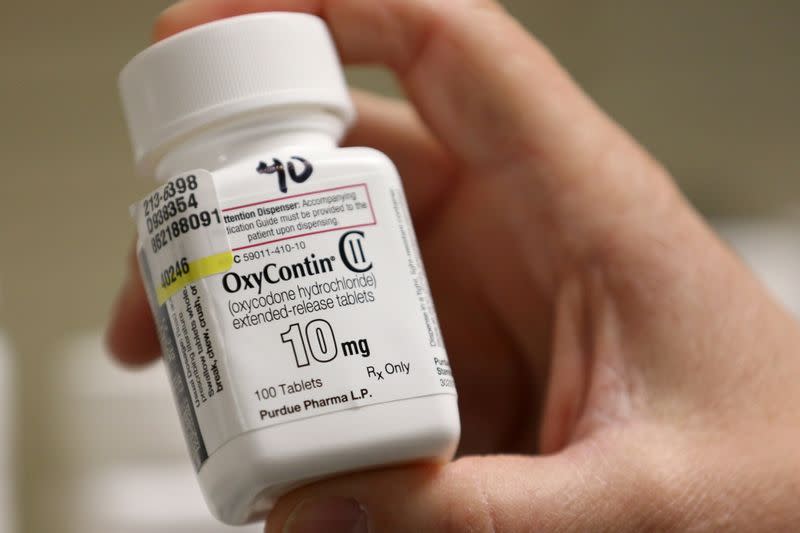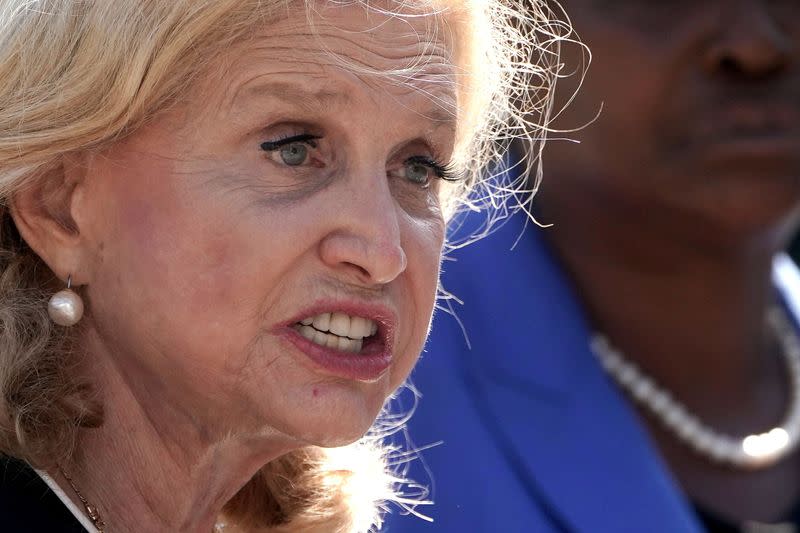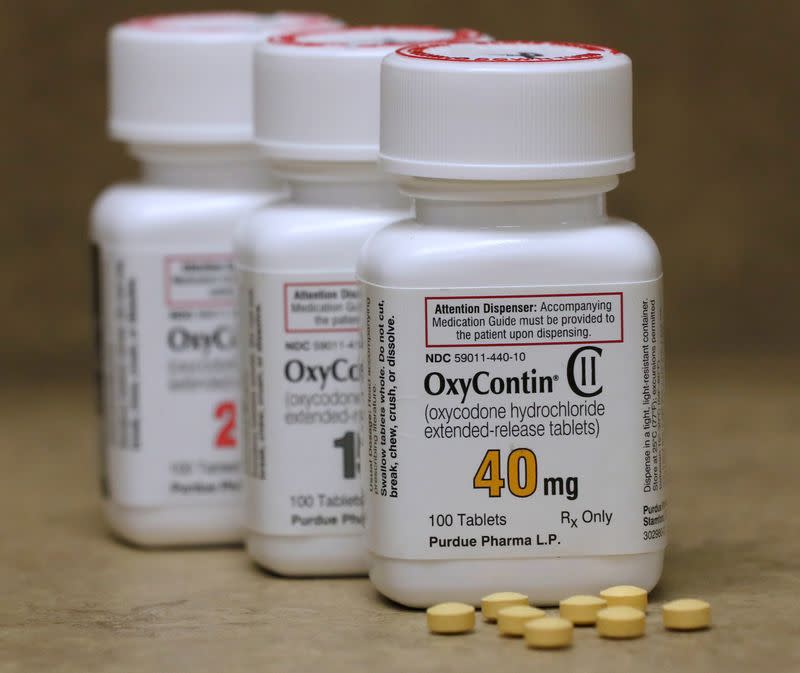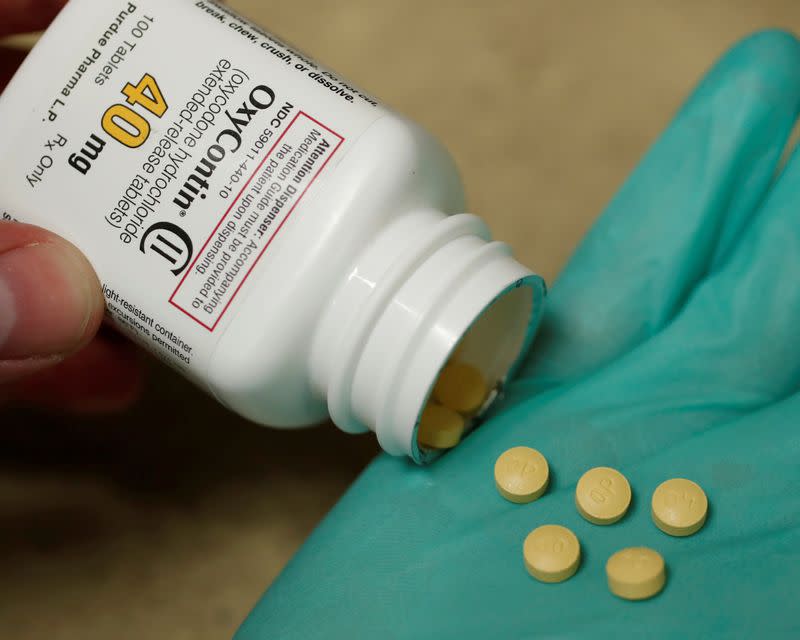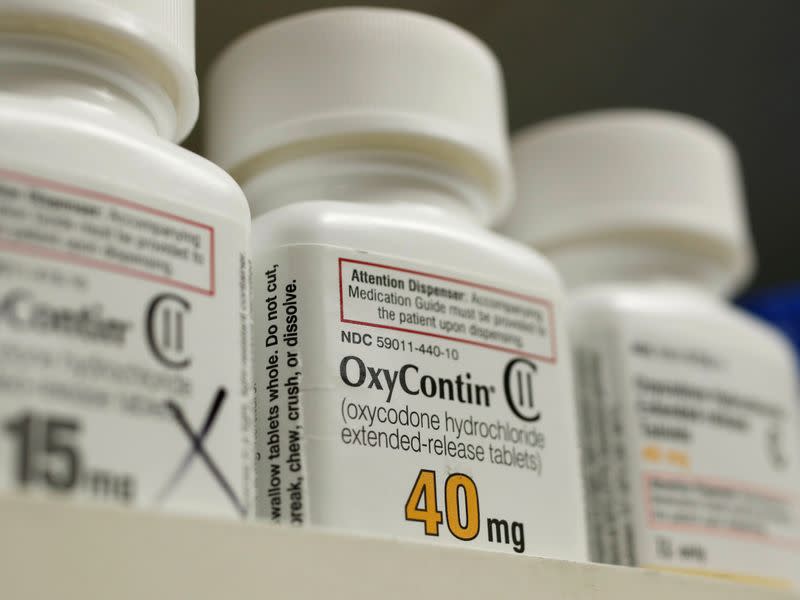Exclusive: Two Sacklers behind OxyContin maker to appear before U.S. House panel-congressional memo
By Mike Spector
(Reuters) - Two Sackler family members who previously served on the board of OxyContin maker Purdue Pharma LP have agreed to appear before a U.S. House of Representatives committee examining the nationwide opioid epidemic, avoiding subpoenas threatened by the panel's chair, according to a congressional memo reviewed by Reuters.
David and Kathe Sackler reached an agreement in recent days with the House Oversight Committee to testify at the hearing, currently set for Thursday, according to a memo dated on Monday outlining the plan to members of the House panel from Democratic Chairwoman Carolyn Maloney. The two are among the Sackler family members who own Purdue Pharma.
Purdue Chief Executive Craig Landau is also slated to testify at the hearing, according to the memo.
In a statement, Purdue confirmed that Landau agreed to testify, adding that the company has "consistently cooperated" with the committee. Landau's testimony will include steps that Purdue is taking to address the opioid crisis, which includes a proposal to settle widespread litigation from U.S. communities that it values at more than $10 billion, the company said.
Representatives for the two Sacklers did not immediately respond to requests for comment.
The opioid epidemic has claimed the lives of roughly 450,000 people in the United States since 1999 due to overdoses from prescription painkillers and illegal substances such as heroin and fentanyl, constituting an enduring public health crisis. Purdue reaped more than $30 billion from opioid sales over the years that enriched Sackler family members, and the company also funneled illegal kickbacks to doctors and pharmacies, investigations have found.
The scheduled hearing follows a far-reaching U.S. Justice Department settlement with the Sacklers and Purdue in October that faced criticism from Democrats on Capitol Hill and state attorneys general suing the company and its owners over the opioid crisis.
The Democratic lawmakers and the state attorneys general have said the deal failed to hold the Sacklers more accountable and faulted its endorsement of a Purdue bankruptcy plan to restructure it as a public benefit company. The envisioned new entity, while no longer controlled by the Sacklers, would still sell OxyContin, the company's addictive prescription painkiller that has figured prominently in the opioid epidemic.
Purdue in November pleaded guilty to criminal charges over its handling of OxyContin, which included defrauding the U.S. Drug Enforcement Administration and paying illegal kickbacks to doctors and a healthcare records vendor, all to help keep opioid prescriptions flowing. The plea deal was part of a broader settlement allowing the company to effectively sidestep paying billions of dollars in penalties.
Sackler family members agreed to pay $225 million to resolve Justice Department civil claims that they disputed. They were not criminally charged.
(Reporting by Mike Spector in New York; Editing by Daniel Wallis and Will Dunham)

